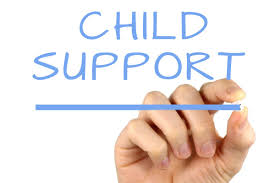All you need to know about Child Support

Principles established under the Family Law Act dictate that both the parents of a child should be financially responsible for the child’s care, regardless of the parents’ marital status, their past or present relationships or their involvement in the child’s life.
In Australia this financial responsibility generally involves the making of regular or periodic contributions of Child Support payments by one parent to the other parent or to the carer of the child, for the child’s ongoing welfare and maintenance.
Who is entitled to Child Support?
Child Support is payable in respect to all children until they reach 18 years of age or until they complete their secondary schooling if they are turning 18 years during the year they complete school.
Adopted children and children from previous relationships are included in the child support scheme as are children born through artificial conception. In these cases, there are general assumptions made with respect to whom the child’s parents are but these can be challenged through a court and/or via Parenting testing.
Child maintenance may be payable in certain circumstances for children over the age of 18 years in full-time study, or who have a physical or mental disability. The Family Law Act makes provision for child maintenance orders for adult children if the court considers such payments are either necessary to complete the child’s education or justified due to the child suffering from a mental or physical disability. In such cases the financial and special needs of the child will be assessed and, if relevant, orders made for financial contributions considered appropriate in the circumstances.
Factors considered when calculating Child Support?
The Child Support scheme is administered by the Department of Human Services (Child Support) (‘DHS’) and the amount of child support paid is usually determined by administrative assessment through DHS or a child support agreement made between the child’s parents. An application for an administrative assessment is generally made to DHS by the primary carer of a child.
DHS uses a complex formula to calculate child support payments with consideration of the following factors:
- the length of time the child spends with each parent/carer;
- the costs of raising children relative to specific age ranges and the capacity for the parents to meet those costs;
- the respective income of each parent;
- each parent’s responsibility for supporting other children;
- the age of the child and other children in the care of each parent;
- the basic living needs of each parent.
Challenging an administrative assessment
Sometimes a child support assessment may not fully consider the special or unusual needs of a child or the circumstances of a parent or carer. Alternatively, a carer or payer’s circumstances may change, either short-term or permanently, resulting in financial hardship. This may be the result of a job loss or illness. In such cases, a parent or carer may apply for a reassessment of child support.
Once a review is completed, the applicant is notified in writing of any new assessment. If a person is unhappy with the decision reached by DHS, an objection must be lodged within 28 days of receiving the revised assessment. If, after a review is conducted, the applicant is still dissatisfied with the outcome, there may be grounds for appealing the decision through a specialist division of the Administrative Appeals Tribunal.
What are child support agreements?
Rather than have child support assessed through DHS Child Support, parents can enter a child support agreement. This is a written agreement made between the parents which sets out their agreed obligations regarding child support, the type, amount and frequency of payments. Payments may include regular ongoing contributions, lump sum payments or periodic payments for specific items such as school fees or health insurance.
A binding child support agreement must be made in writing and be signed by both parties. The parties must receive independent legal advice and the agreement must include a statement signed by the parties’ respective lawyers to this effect. These agreements can only be varied mutually between both parties or alternatively and in limited circumstances, by an order of the Family Court.
Payment of Child Support
Payments of Child Support can be made privately between the parties or collected and distributed by DHS Child Support. This applies whether payments have been calculated through an administrative assessment or if they are being paid under a child support agreement.
DHS Child Support has the power to enforce payments of child support. This is of great assistance where the paying parent has previously been unreliable in meeting child support commitments or has a history of violence.
If necessary, payments may be enforced by debiting a bank account held in the payer’s sole name, taking payments from a tax refund due to the payer or commencing debt recovery proceedings in court.
Child Support issues can become contentious and are often charged with emotion and frustration. The principle that both parents should contribute financially to their child’s upbringing is often overlooked and it is during this time that the guidance of an experienced family lawyer will benefit all parties. Our family lawyers can assist in lodging a child support application with OHS Child Support, check whether child support payments have been correctly assessed and, if necessary, object to an assessment, or prepare and negotiate a child support agreement.
If you or someone you know wants more information about Child Support or wants advice about an existing Child Support arrangement please contact Oliver Hagen or Ken Gray on 4731 5899 or email familylaw@batemanbattersby.com.au.
Download PDF Version:
All you need to know about Child Support